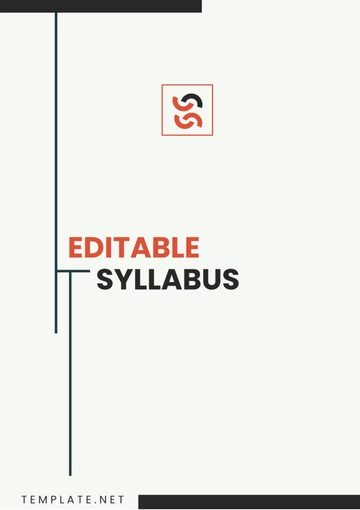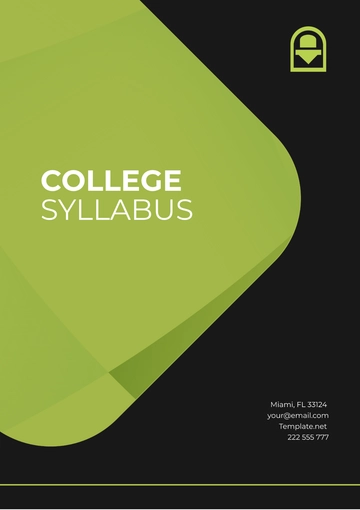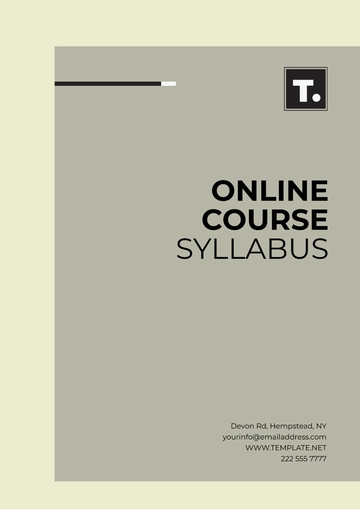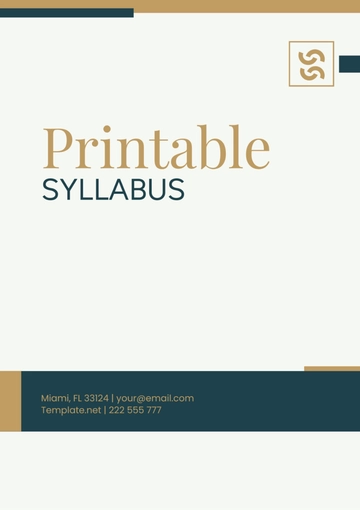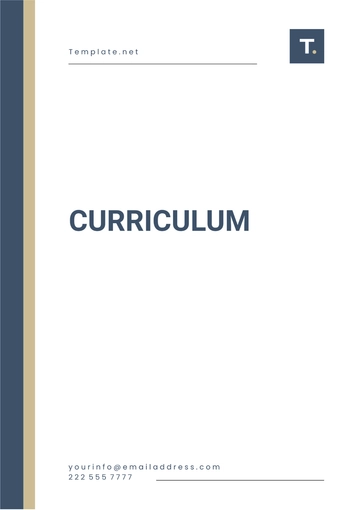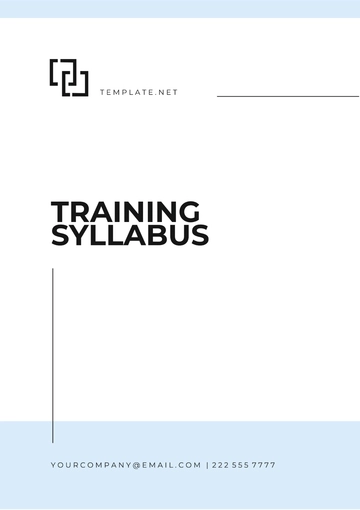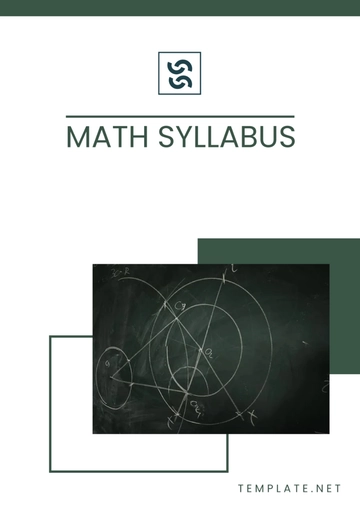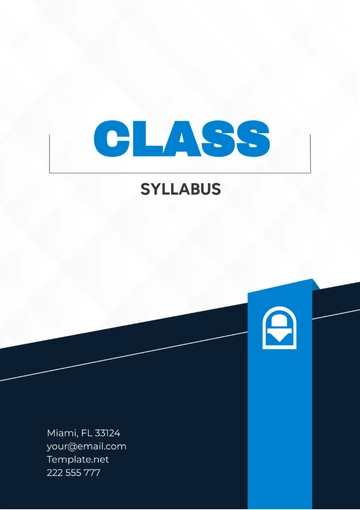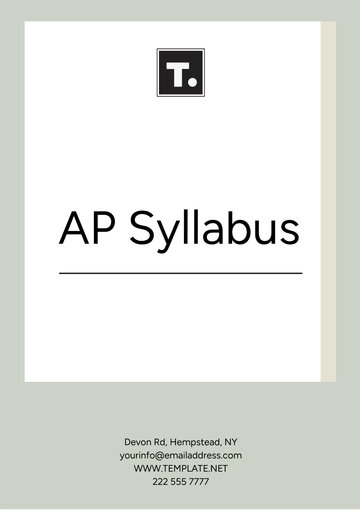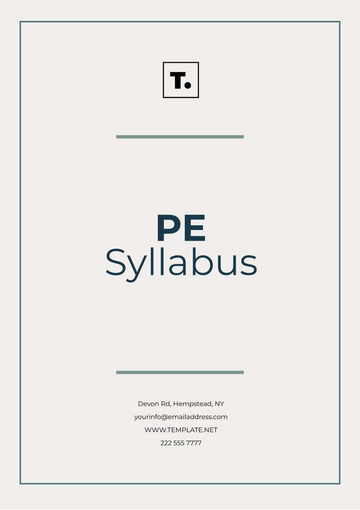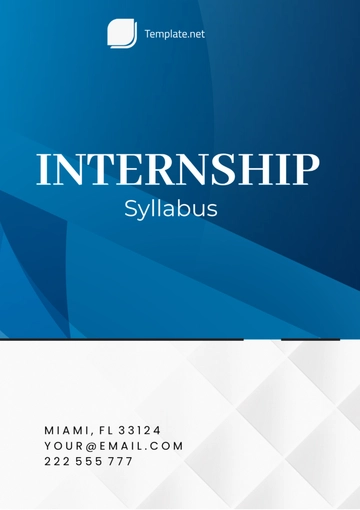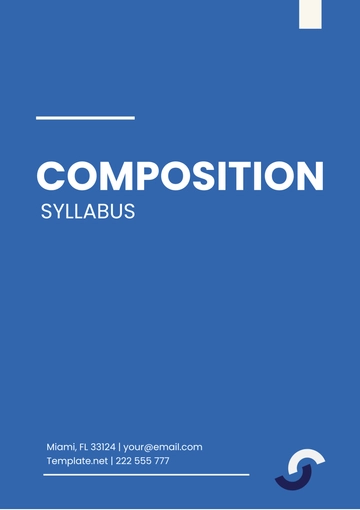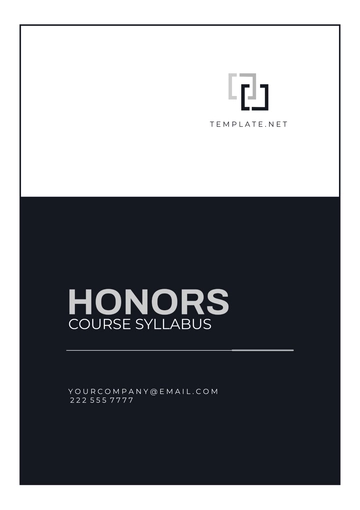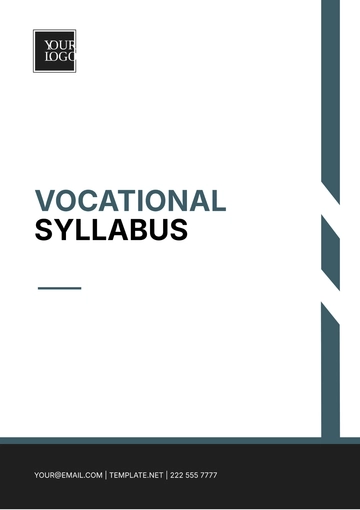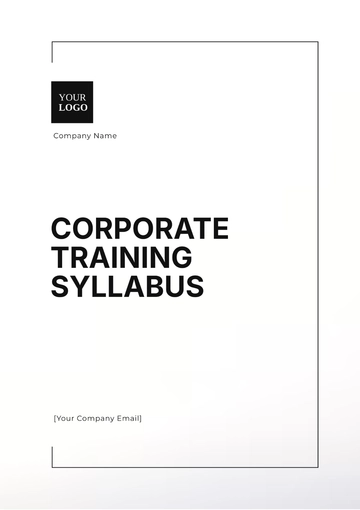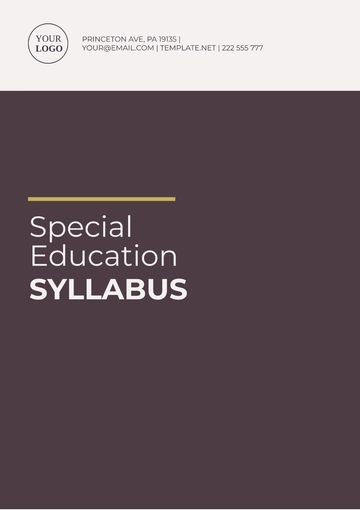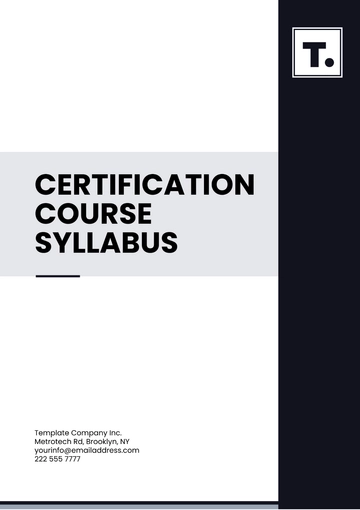Free Communication Theory Syllabus
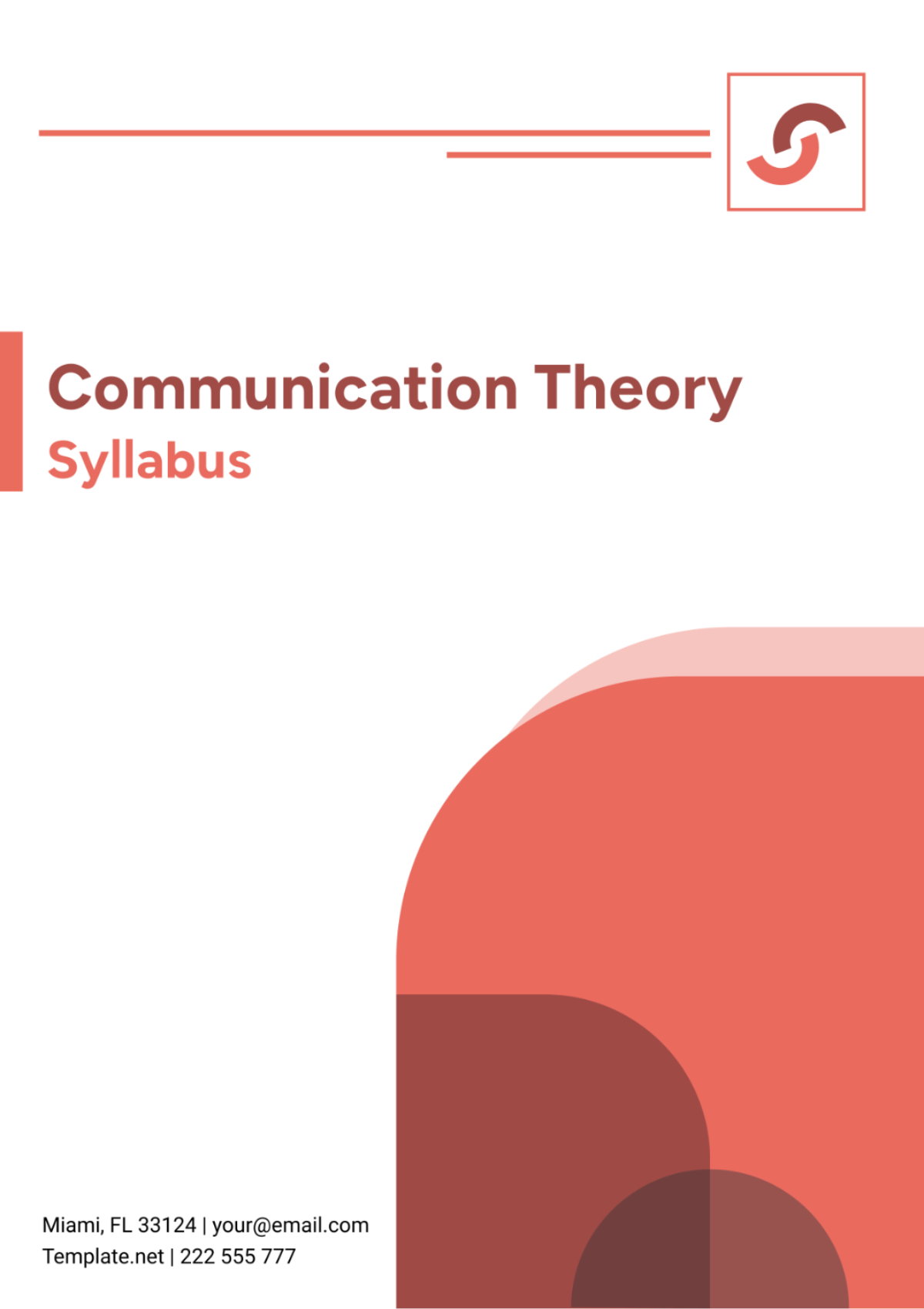
COMMUNICATION COURSE
Course Title | [COURSE TITLE] |
Course Code | [COURSE CODE] |
Office Hours | [OFFICE HOURS] |
Class Location | [CLASS LOCATION] |
Class Time | [CLASS TIME] |
Class Duration | [DATE] - [DATE] |
1. Course Description
This course, "Communication Theory", allows students to explore the theories behind how we communicate with one another. It discusses multiple perspectives including psychological, sociological, and cultural viewpoints that influence communication.
2. Instructor Information
Instructor: [YOUR NAME]
Contact: [YOUR EMAIL]
3. Learning Objectives
Understand the basic elements and principles of communication theory.
Analyze different communication theories and how they apply to real life situations.
Discuss historical development and trends in communication theory.
Evaluate the cultural, ethical, and critical issues surrounding communication theory.
Develop and deliver presentations on selected communication theories.
4. Course Schedule
Week | Topic | Reading |
|---|---|---|
1 | Introduction to Communication Theory | - |
2 | Interpersonal Communication Theories | "Interpersonal Communication" Ch.3 |
3 | Mass Communication Theories | "Media and Society" Ch.5 |
4 | Group Communication Theories | "Small Group Communication" Ch.4 |
5 | Organizational Communication Theories | "Organizational Communication" Ch.3 |
6 | Cultural Communication Theories | "Intercultural Communication" Ch.4 |
7 | Critical Theories of Communication | "Critical Communication Studies" Ch.6 |
8 | Ethical Issues in Communication Theory | "Communication Ethics" Ch.8 |
9 | Evolution of Communication Theory | "Understanding Media and Culture" Ch.2 |
10 | Contemporary Trends in Communication Theory | Scholarly articles and journals |
11 | Application of Communication Theory in Real Life | Case studies and examples |
12 | Review and Preparation for Final Exam | All course materials |
5. Required Reading and Materials
Griffin, E. (2012). A First Look at Communication Theory (8th ed.). McGraw-Hill.
Wood, J. T. (2015). Interpersonal Communication: Everyday Encounters (8th ed.). Cengage Learning.
West, R., & Turner, L. H. (2010). Introducing Communication Theory: Analysis and Application (4th ed.). McGraw-Hill.
Journals: Journal of Communication, Human communication research, Communication Research
Access to the internet for weekly online research and assignments
6. Assignments and Assessments
Weekly chapter reviews and discussions on assigned readings.
Two midterm exams to assess understanding and application of theories.
Periodic group assignment to encourage critical thinking and collaboration skills.
A final project: In-depth analysis and presentation of a chosen communication theory.
A final exam at the end of the course covering all material.
7. Course Policy
Attendance is mandatory. Email notifications for any absences are expected.
Assignments are to be submitted on or before the deadline.
Plagiarism will not be tolerated, and may result in failing the course.
Respect for diversity & inclusion in class discussions is necessary.
All course materials should be reviewed ahead of class for better engagement in discussions.
8. Grading Policy
Category | Weight |
|---|---|
Class Participation | 15% |
Weekly Assignments | 20% |
Midterms | 20% |
Final Project | 25% |
Final Exam | 20% |
Disclaimer:
The syllabus outlined above is subject to potential revisions or amendments as required during the course term. Any modifications will be promptly communicated during class sessions, and updated versions of the syllabus will be provided accordingly. Your flexibility and understanding regarding these potential adjustments are greatly appreciated.
- 100% Customizable, free editor
- Access 1 Million+ Templates, photo’s & graphics
- Download or share as a template
- Click and replace photos, graphics, text, backgrounds
- Resize, crop, AI write & more
- Access advanced editor
Introducing the Communication Theory Syllabus Template from Template.net! Crafted for educators, it's fully editable and customizable to suit your course requirements. Seamlessly adapt it using our Ai Editor Tool for a personalized touch. Elevate your teaching experience effortlessly with this versatile resource.

